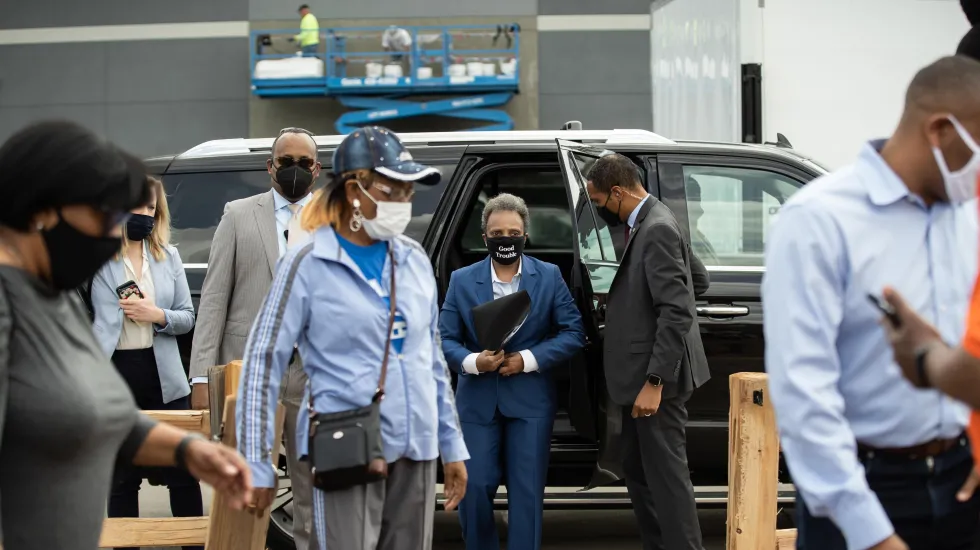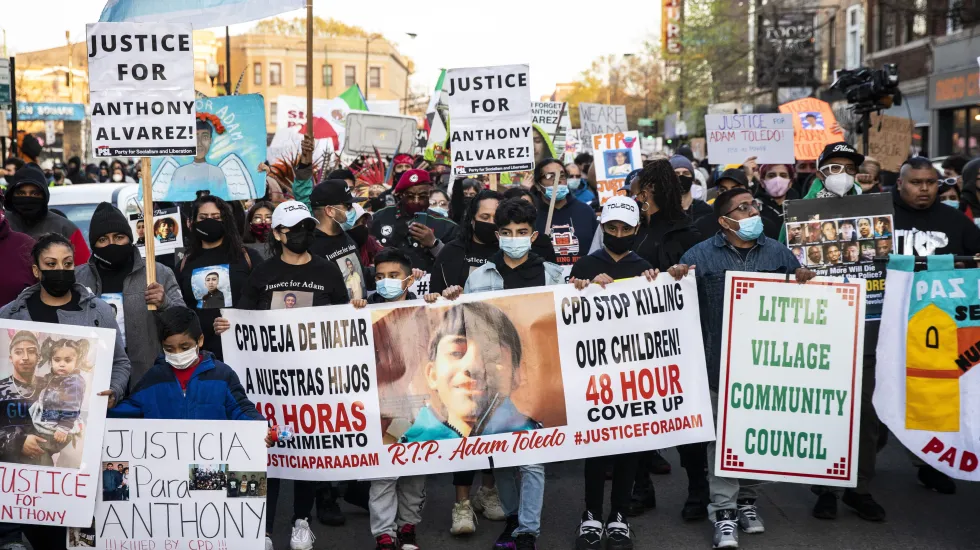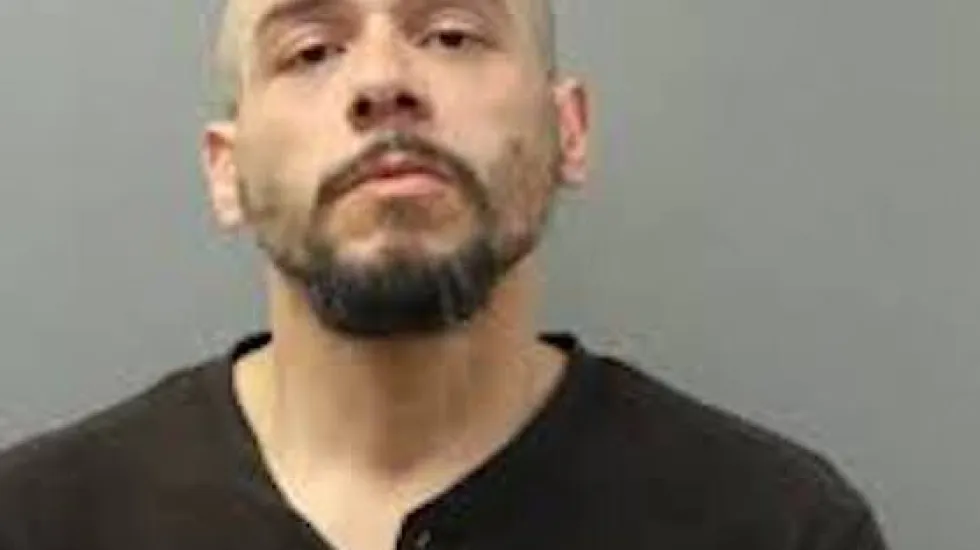
Nearly two years ago, the Chicago Police Department quietly created a special unit to protect Mayor Lori Lightfoot’s home and City Hall and oversee her personal bodyguard detail.
Unit 544 began with a handful of officers and has grown, as of March 21, to a roster of 65 officers, five sergeants and a lieutenant, city records show.
Like previous Chicago mayors, Lightfoot also has a separate personal bodyguard detail, which includes about 20 officers, the records show.
On July 7, 2020, the police department sent a memo to rank-and-file officers saying they could apply to the new Unit 544, also called the Government Security Detail.
“The unit’s mission will be to provide physical security for City Hall, the mayor’s residence and the mayor’s detail command post,” the memo said. “Through the coordination of intelligence and resources, officers will respond to all threats related to the mayor’s physical properties to ensure its protection.”
The unit was limited to officers with at least five years on the job. The desired qualifications included “experience in providing security and property protection services.” But there hasn’t been any specialized training for the unit, according to the police department’s response to a public records request.
Around the same time the unit was being formed in the summer of 2020, residents of Humboldt Park and Logan Square were complaining that the Shakespeare district, which covers their neighborhoods, was getting stretched thin because so many patrol officers there were being assigned to keep protesters from gathering outside Lightfoot’s house in Logan Square.
In an interview, Lightfoot said the decision to create Unit 544 wasn’t related to the criticism over Shakespeare officers being posted near her house.
“There wasn’t kind of a unified command of the [officers] who were in City Hall, at my house and my [bodyguard] detail,” she said. “The first floor of City Hall was one chain of command, the second floor was different chain of command, the fifth floor [where the mayor’s office is located] was a different chain of command, the house was different and the [bodyguard] detail was different.”
“We thought, and this is way before the protests or anything else, it just didn’t make sense. Because, you know, if there was some kind of emergency at City Hall, for example, the right hand wouldn’t necessarily know what the left hand was doing because they all reported to different chains of command,” the mayor said.
“And then obviously, in 2020 in particular, there were a significant amount of protests all over the city, and some of them targeted at my house. All the more reason why having a unified command to understand and share intelligence and be ready to respond if there was any kind of threat was very important.”
In a Sept. 1, 2020, email to Lightfoot’s office, Tom Cochran, executive director of the U.S. Conference of Mayors, had warned of attacks on the homes of the mayors of Portland, Oregon, and San Jose, California, and of death threats to other mayors.
“The fact is that all mayors should look at doing a security assessment as to their personal residence, family, and children,” Cochran wrote. “It seems that the current rhetoric concerning mayors [is] even more invasive toward mayors personally [and] there is an extra heavy burden of abusive and possible bodily harm.”

Asked if having 71 officers in Unit 544 along with the officers in the mayor’s bodyguard detail is too many, a former top City Hall aide familiar with the creation of the unit shrugged.
“I don’t know what the right number is,” said the ex-official, who asked not to be named. “They should be doing data-informed deployment. What does the data say?”
But John Catanzara, president of Chicago’s Fraternal Order of Police and a regular Lightfoot critic, said she’s safeguarding herself at the cost of public safety.
“While murders are soaring, while districts are barebones for manpower, all that matters is protecting her castle,” he said.
Lightfoot isn’t apologizing for the security surrounding her and her family.
She didn’t name him, but she said former President Donald Trump has a lot to do with it.
“When the president of the United States uses the world’s largest megaphone and platform to target you personally, terrible things happen. And he not only blew a dog whistle, he pointed really evil and dangerous people right at my doorstep,” Lightfoot said.

Lightfoot and her family had a serious scare earlier this year.
Joseph Igartua, angry over parking tickets, approached Lightfoot’s home to deliver a letter to her, police said. He was stopped by Chicago police officers. Igartua was armed with a loaded gun but was released because the officers thought he had a valid state concealed-carry license.
Igartua, 37, returned to the mayor’s house Feb. 13 and 14, alarming her, according to Cook County prosecutors.
On Feb. 16, he was spotted driving in an alley near Lightfoot’s home and then, according to a ShotSpotter gunshot detector, fired a weapon five times, police said. Igartua was arrested on charges of stalking and reckless discharge of a weapon. A background check revealed his concealed carry license had been suspended and his firearm owner’s identification card was revoked.
He’s being held without bond.
“I thank God for the police protection that we have, but this one is really unnerving. And scary. He first came to our house on a Saturday night when we were there. My wife and child and I were home. When somebody shows up at your house, clearly going through a mental crisis, with a loaded gun, that’s frightening,” Lightfoot said, still visibly shaken up.
“I mean, it’s different than a call. It’s different than an email. This was real. And it scared us. I’m not gonna lie. It was very, very frightening. So I’m thankful for the quick work of the police department to really protect us against this real threat.”







